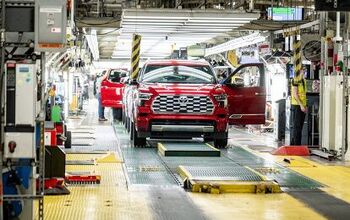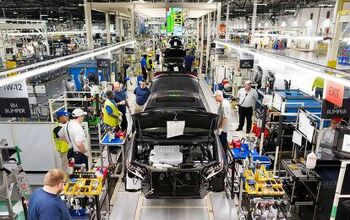Honda, That Green-Eyed Monster?

For some companies, the ongoing financial crisis will be fatal, but for others, it may turn out to be a historical opportunity to re-define themselves. When weak brands disappear, others can fill their niche. Honda, for one, seems to be one of the first car makers to seize the opportunity that the industry’s re-structuring is providing. “Where we want to be by 2015 is the environmental leader. I mean that in a credible sense, not a greenwash sense,” Chris Brown, the head of marketing for Honda Motor Europe, told The Guardian. Which is easy to say, although Brown says Honda does support an eco-rating system to prevent misleading environmental advertising claims. But the first step in this branding conversion was announced last week, when Honda said it would be terminating its Formula One activities and re-assigning its F1 engineers to work in eco-technology. Egads! Is Honda about to put all that talent towards becoming the car for the dour, anti-car league? Honda is directing its $150m+ ad budget for Europe and Africa towards addressing this question. As Brown puts it, “We want to change the conversation completely. At the moment everything is heavy-handed, preachy and overwhelming. We want it to be positive, optimistic, joyful, powerful.”
Making Greeniness (Treehuggism?) a car company’s main focus might sound radical, but I actually think it is eminently sensible. Most people are not like us: they don’t feel they need a sporty, luxurious or ostentatious car. A sizeable minority wants to drive a pleasant, reliable, responsive vehicle that has a small-as-possible ecological impact. In the past, Volvo may have tried to occupy this space in the car-driver’s mindset, but was too inept in the follow-through. Toyota currently defines “follow-through” when it comes to hybrids, but at what cost? Premium-gargling pistonheads will feel regret when a former sports brand re-defines its focus to cater to Bobos. From a branding point of view however, focus is king. And if those out-of-work F1 guys are working on the CR-Z, the “positive, optimistic, joyful, powerful” stuff might just have a chance.

More by Martin Schwoerer
Latest Car Reviews
Read moreLatest Product Reviews
Read moreRecent Comments
- Honda1 Unions were needed back in the early days, not needed know. There are plenty of rules and regulations and government agencies that keep companies in line. It's just a money grad and nothing more. Fain is a punk!
- 1995 SC If the necessary number of employees vote to unionize then yes, they should be unionized. That's how it works.
- Sobhuza Trooper That Dave Thomas fella sounds like the kind of twit who is oh-so-quick to tell us how easy and fun the bus is for any and all of your personal transportation needs. The time to get to and from the bus stop is never a concern. The time waiting for the bus is never a concern. The time waiting for a connection (if there is one) is never a concern. The weather is never a concern. Whatever you might be carrying or intend to purchase is never a concern. Nope, Boo Cars! Yeah Buses! Buses rule!Needless to say, these twits don't actual take the damn bus.
- MaintenanceCosts Nobody here seems to acknowledge that there are multiple use cases for cars.Some people spend all their time driving all over the country and need every mile and minute of time savings. ICE cars are better for them right now.Some people only drive locally and fly when they travel. For them, there's probably a range number that works, and they don't really need more. For the uses for which we use our EV, that would be around 150 miles. The other thing about a low range requirement is it can make 120V charging viable. If you don't drive more than an average of about 40 miles/day, you can probably get enough electrons through a wall outlet. We spent over two years charging our Bolt only through 120V, while our house was getting rebuilt, and never had an issue.Those are extremes. There are all sorts of use cases in between, which probably represent the majority of drivers. For some users, what's needed is more range. But I think for most users, what's needed is better charging. Retrofit apartment garages like Tim's with 240V outlets at every spot. Install more L3 chargers in supermarket parking lots and alongside gas stations. Make chargers that work like Tesla Superchargers as ubiquitous as gas stations, and EV charging will not be an issue for most users.
- MaintenanceCosts I don't have an opinion on whether any one plant unionizing is the right answer, but the employees sure need to have the right to organize. Unions or the credible threat of unionization are the only thing, history has proven, that can keep employers honest. Without it, we've seen over and over, the employers have complete power over the workers and feel free to exploit the workers however they see fit. (And don't tell me "oh, the workers can just leave" - in an oligopolistic industry, working conditions quickly converge, and there's not another employer right around the corner.)































Comments
Join the conversation
NASCAR sponsors hit by sticker shock - NYTIMES: http://www.nytimes.com/2008/12/14/business/14nascar.html?_r=1
Everybody, thanks for your interesting comments! I was more or less on the road over the weekend and was not really aware this piece would be published when it was. I have nothing to add at the moment, but I appreciate the lively debate. Just one thing to folkdancer: Bobo is marketing lingo and refers to a perceived class of consumers, the "bourgeois bohemian", i.e. artsy (-fartsy) people with money. It was silly of me to use jargon without explanation -- sorry about that. I do hope nobody thought I meant "Bobo" as in "Jamaican slang for cannabis", or "A common nickname for Boise, Idaho", or as "portuguese slang for Fellatio".